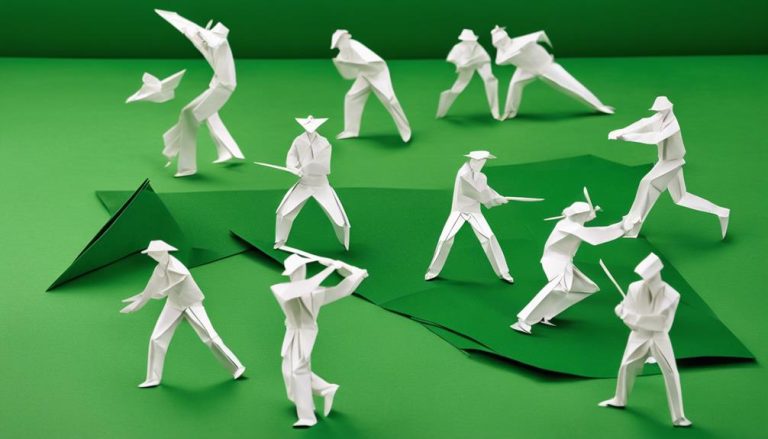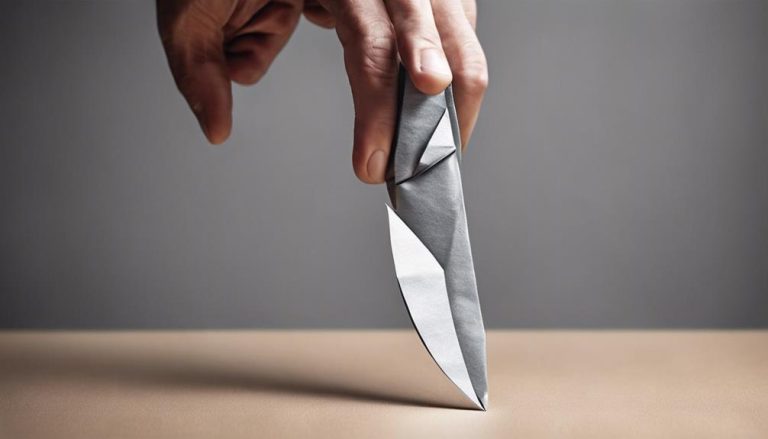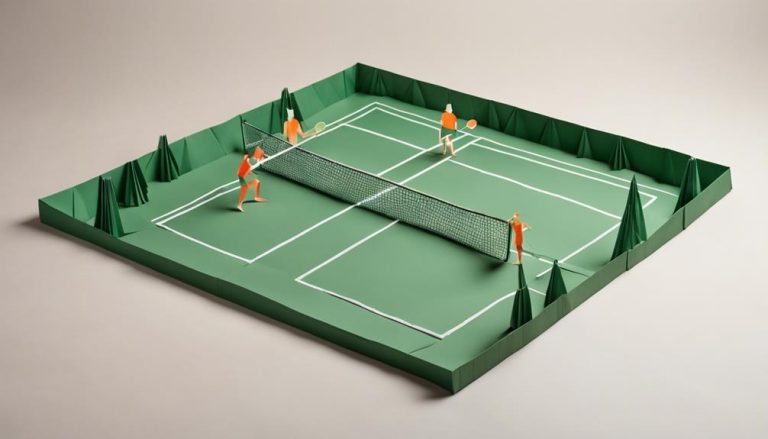General Rules of Jujutsu
When you step onto the mat for a jujutsu session, imagine facing an opponent who is larger and stronger than you. Your ability to rely on technique rather than critical force becomes essential in this scenario. But what are the general rules that guide your practice? Understanding these fundamental principles not only enhances your skills but also fosters a safe and respectful training environment. Intrigued to explore how these rules shape the essence of jujutsu practice?
Safety Precautions
Before engaging in Jujutsu training, it is imperative to carefully adhere to the safety precautions outlined to minimize the risk of injury. To guarantee injury prevention, always wear the proper gear. This includes a well-fitted gi, mouthguard, and appropriate footwear. The gi should not be too loose to avoid entanglement during practice, and the mouthguard is essential to protect your teeth and jaw during combat. Proper footwear provides stability and support, reducing the risk of slipping or twisting an ankle.
In the event of an emergency, familiarize yourself with the dojo's emergency procedures. Knowing how to swiftly respond to injuries is crucial. Basic knowledge of first aid can be invaluable in providing immediate assistance until professional help arrives. Be prepared to administer aid for common injuries such as bruises, sprains, or cuts. Additionally, understanding when to seek medical attention is vital. A minor injury left unattended can escalate into a more severe issue if not treated promptly.
Technique Execution
When executing techniques in Jujutsu, focus on precise movements and controlled breathing to enhance your effectiveness and mastery of the art. Proper form is paramount in Jujutsu. Each technique should be executed with meticulous attention to detail. Your stance must be firm, your movements fluid yet deliberate. The angle of your limbs, the positioning of your body, all must align with the fundamental principles of the technique being performed.
Controlled breathing is not merely a physical act but a gateway to mental clarity. As you engage in each movement, synchronize your breath with your actions. Inhale deeply as you prepare, and exhale with purpose as you execute the technique. Controlled breathing not only oxygenates your muscles, increasing your stamina but also calms the mind, allowing for heightened focus and precision.
To truly excel in Jujutsu, one must embody grace in motion. The execution of techniques should be a harmonious blend of power and finesse. Your body is a vessel through which the art flows, each technique a brushstroke in the masterpiece of combat. Embrace the discipline required to perfect your craft. Through proper form and controlled breathing, you will discover the full potential of your abilities and elevate your Jujutsu to an art form that transcends the physical, offering liberation in the mastery of self.
Respect for Training Partners
Showing respect for your training partners is a fundamental aspect of cultivating a disciplined and harmonious environment in Jujutsu practice. In a martial art where partner communication and mutual trust are paramount, how you treat your fellow practitioners greatly influences the quality of your training sessions. By upholding respect for your training partners, you not only demonstrate your commitment to the art but also contribute to a positive and safe training environment.
| Respect for Training Partners | Description |
|---|---|
| Partner Communication | Clear and effective communication with your training partners is essential for a successful practice. Communicate respectfully to ensure understanding and safety during techniques. |
| Mutual Trust | Building mutual trust with your training partners is crucial. Trust allows for realistic training scenarios and facilitates growth in both technique and character. Establishing trust creates a strong foundation for collaborative practice. |
| Observing Boundaries | Respecting your training partners' physical boundaries is key to maintaining a safe and comfortable training environment. Always seek consent before adjusting techniques or engaging in more intense training. |
| Encouragement | Offering encouragement to your training partners fosters a supportive atmosphere. Positive reinforcement motivates both you and your partners to push boundaries and improve together. |
| Gratitude | Expressing gratitude towards your training partners for their time and effort shows appreciation for their role in your development. Recognize and acknowledge their contributions to your progress. |
Etiquette in the Dojo
As you step onto the dojo floor, remember the importance of bowing before training, a gesture that signifies respect and humility. Show reverence for your instructors by listening attentively to their guidance and following their instructions diligently. Maintain the sacred space of the dojo by upholding cleanliness and tidiness, reflecting the discipline and orderliness essential to martial arts practice.
Bowing Before Training
Before engaging in training, it is customary to bow as a sign of respect and readiness in the dojo. This act of bowing is deeply rooted in cultural tradition and holds great significance in the world of martial art practice. By bowing, you not only demonstrate respect for the art, the dojo, and your training partners but also prepare your mind for the discipline and focus required during practice. The bow symbolizes humility, openness to learning, and a willingness to adhere to the principles of Jujutsu. It is a moment of mindfulness, setting the tone for the training session ahead. Embrace this simple yet powerful gesture as you step onto the mat, embodying the spirit of honor and dedication that defines the path of Jujutsu.
Respect for Instructors
Demonstrate reverence and attentiveness towards your instructors by adhering to the established etiquette within the dojo. In the practice of Jujutsu, respecting your instructors is paramount. Here's how you can show your respect:
- Acknowledge the authority of your instructors at all times.
- Follow instructions promptly and with diligence.
- Approach each lesson with an attitude of humility and enthusiastic to learn.
- Address your instructors with proper titles and bow to them as a sign of respect.
Cleanliness and Tidiness
Maintain the cleanliness and tidiness of the dojo to uphold the standards of etiquette in Jujutsu practice. Hygiene practices are essential for creating a respectful and healthy training environment. Make sure that you and your training partners follow proper hygiene practices by keeping your body and attire clean. Additionally, equipment maintenance is vital for safety and effectiveness during practice sessions. Always inspect and clean your gear regularly to prevent accidents and guarantee longevity. Dojo cleanliness is a reflection of your commitment to the art and respect for your fellow practitioners. Sweep the floors, organize the training area, and dispose of any waste properly. By upholding cleanliness and tidiness in the dojo, you contribute to a harmonious and focused training atmosphere.
Understanding Body Mechanics
To master Jujutsu, you must grasp the essence of proper stance alignment and efficient joint manipulation. These fundamental principles are vital in achieving effectiveness and precision in your techniques. Pay close attention to the intricate details of body mechanics to elevate your skills to the next level.
Proper Stance Alignment
In the practice of Jujutsu, achieving proper stance alignment is fundamental to mastering the art and maximizing your efficiency in executing techniques. To guarantee you have a strong foundation, focus on the following:
- Balance Control: Maintain equilibrium to respond swiftly.
- Foot Positioning: Ground yourself effectively for stability.
- Alignment of Hips and Shoulders: Coordinate these for power in movements.
- Center of Gravity Awareness: Understand this to enhance your control.
Efficient Joint Manipulation
Grounded in the principles of body mechanics, efficient joint manipulation in Jujutsu demands a meticulous understanding of anatomical leverage and alignment. To execute flawless joint locks, precision is paramount. Your focus should be on timing and leverage, ensuring that each movement is exact and deliberate. By mastering this art, you gain the ability to immobilize opponents with minimal effort, utilizing their body's natural structure against them. Remember, the key lies in the subtlety of your actions; a slight adjustment in angle or pressure can make all the difference. Embrace the discipline required to perfect these techniques, and you will find yourself capable of controlling any situation with finesse and skill.
Importance of Consistent Practice
Consistent practice is the cornerstone of mastering the art of Jujutsu. To truly excel in this ancient discipline, you must commit to regular and focused training. Here are some key points emphasizing the importance of consistent practice:
- Skill Development: Each practice session is an opportunity to refine your techniques, improve your timing, and enhance your overall skill level. Without consistent practice, your progress may stagnate, hindering your development as a Jujutsu practitioner.
- Muscle Memory: Repetition is key to building muscle memory, which allows your body to react swiftly and instinctively during combat situations. Consistent practice reinforces these essential muscle memories, making your movements more precise and effective.
- Focus: Regular practice hones your ability to concentrate solely on the present moment, sharpening your focus both on and off the mat. Through consistent training, you cultivate a disciplined mind capable of staying calm and alert even in the most challenging situations.
- Discipline: Jujutsu demands a high level of discipline, requiring you to adhere to a strict training regimen and push yourself beyond your limits. Consistent practice instills discipline not only in your martial arts practice but also in all aspects of your life, fostering personal growth and self-mastery.
Frequently Asked Questions
How Can I Improve My Mental Focus and Concentration During Jujutsu Training?
To enhance your mental focus in jujutsu training, practice mindfulness through breathing techniques. Engage in visualization and mental exercises to sharpen concentration. Cultivate a disciplined mind through these methods to excel in your practice.
What Are Some Common Mistakes Beginners Make When Learning Jujutsu Techniques?
When learning jujutsu techniques, common mistakes for beginners include rushing movements and neglecting proper form. Remember to focus on mastering each technique with precision. Mental training is essential for enhancing concentration during practice.
Are There Any Specific Dietary Recommendations for Jujutsu Practitioners to Follow?
To excel in Jujutsu, prioritize balanced nutrition, and hydration. Consume a mix of lean proteins, whole grains, fruits, and veggies. Stay hydrated by drinking water regularly. These choices enhance your performance and overall well-being.
How Can I Prevent Injuries While Practicing Jujutsu Outside of the Dojo?
To prevent injuries while practicing jujutsu outside of the dojo, always be mindful of your surroundings. Practice on even ground, wear proper gear, and warm up before training. Respect your body's limits and listen to it.
What Are Some Ways to Incorporate Jujutsu Principles Into Everyday Life?
To incorporate jujutsu principles into everyday life, practice mindfulness for mental clarity, engage in physical conditioning for strength, use self-defense techniques for protection, and manage stress for balance. Embrace discipline and focus for liberation.






